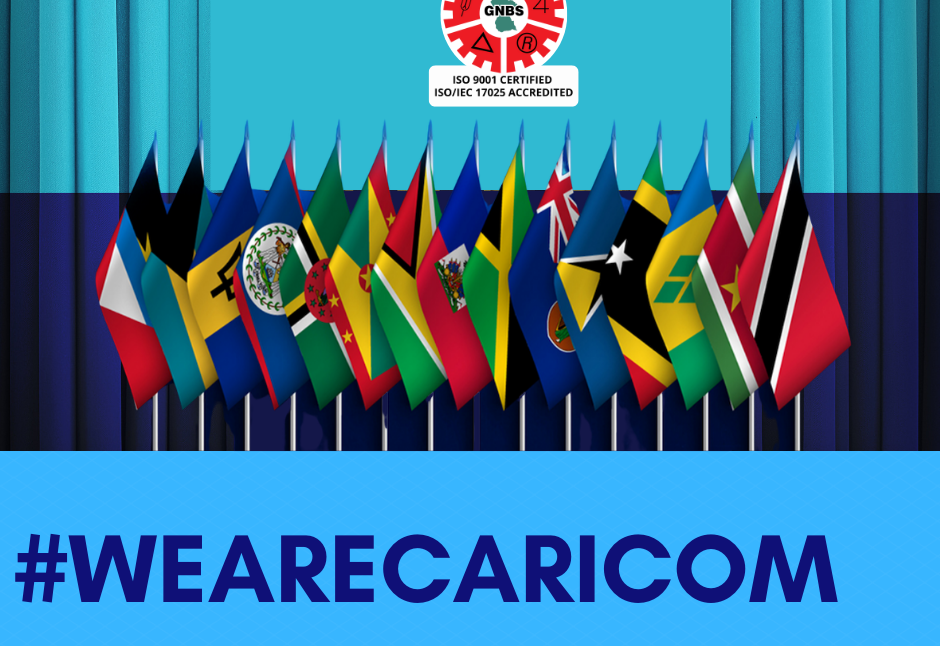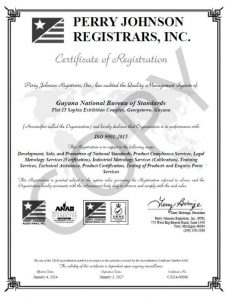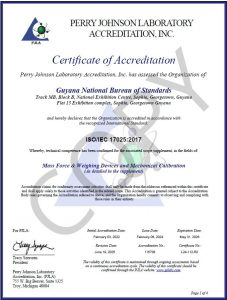As Guyana and the other CARICOM Member States prepare to celebrate 49 years since the birth of CARICOM, we must appreciate the inroads made to ensure the movement of products in the region, particularly as it relates to the development and use of standards in the determination and acceptance of the quality of imports and exports.
Article 67 of the Treaty of Chaguaramas requires that the Council for Trade and Economic Development (COTED), in collaboration with competent agencies, develop a standardization programme consistent with the international obligations of Member States. The programme objectives include trade facilitation, enhanced efficiency in the production, delivery of goods and services, and protection of consumers and the environment.
The CARICOM Regional Organisation for Standards and Quality (CROSQ) was established two decades ago in 2002 with the aim to promote efficiency and the competitive production of goods and services, through the process of Standardisation and the verification of quality across the Region. Pivotal to CROSQ’s functions is facilitating the development of Regional Standards.
CROSQ as the Standardisation Arm of CARICOM is comprised of National Standards Bodies (NSBs) from each of the fifteen (15) member states, such as the Guyana National Bureau of Standards (GNBS), the Belize Bureau of Standards (BBS) and the Bureau of Standards of Jamaica (BSJ). The CROSQ Council approves all Regional Standards, and this approval is ratified by the Council of Trade and Economic Development (COTED).
Member States like Guyana adopt Regional Standards as National Standards, which are used for trade, regulatory purposes and as industry guides for product, service, and process quality.
Currently, there are approximately 40 Regional Standards available for businesses to implement to demonstrate that their products and services satisfy requirements for cross-border trade within CARICOM. These include standards for biscuits, brewery products, coconut oils, coconut water, tobacco products, gold articles, achar, cassava bread, cosmetics, honey, furniture and the grading of mangoes, peppers, oranges, pineapples, and table eggs. The list of CARICOM Regional Standards covers a wide range of locally produced products that can access many regional markets once in conformance to specified requirements.
Developing and implementing Regional Standards that are recognised by all Member States help to reduce the incidence of standards and regulations being used as barriers to trade. This means well for the implementation of the WTO (World Trade Organisation) Agreement, which was signed by most Member States of CARICOM. Additionally, the easy flow of standard-compliant goods and services around the regions provides a sense of pride and confidence in what Member States are able to offer each other while at the same time allowing their economies to maximize the benefits of inter-regional trade.
Finally, as we prepare to celebrate CARICOM Day tomorrow Monday, July 04, let us all focus on the positive outcomes of CARICOM including strides made in the areas of Regional Standardisation and Trade. We should all be proud. #WeAreCARICOM
For further information on this subject, contact the GNBS on telephone numbers: 219-0064 or 219-0065 or WhatsApp us on 692-4627.






